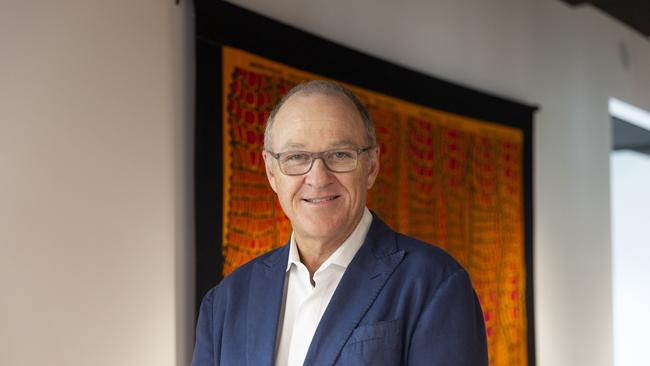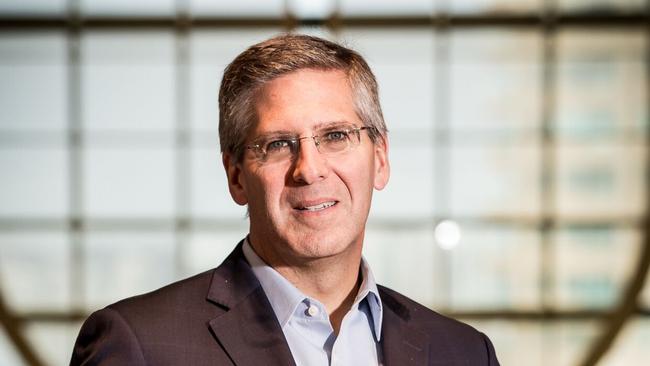
The first failure was the breaches of confidentiality in briefing against the Australian Taxation Office after private briefings, a clear breach of trust, but as usual this was exacerbated by the incompetent handling of the problems.
PwC is obviously on centre stage with next week’s Senate Budget estimate committees creating a platform for Senator Deborah O’Neill and others to push the case but it has taken the entire profession down with it.
The chance of PwC winning government work any time soon is zero and this will have widespread impact both within the firm and the industry.
Given PwC appeared to repeatedly breach government confidentiality agreements, the obvious questions include how were these agreements drawn, who was the party briefing the profession, what was said, why was professional opinion sought, how was PwC included given potential past misdemeanours, what is being done about the apparent breaches and how will the meetings be handled in the future.
The names of clients and others involved adds to the theatre but the real issues centre on the fundamental breaches of trust between PwC and its key client, the government, how this was allowed and what is being done about it.

As noted elsewhere the Luke Sayers era at PwC has taken on a whole new dimension given the events all took place under his governance as PwC chief.
It makes sense for government to test reforms with the practising professions but repeated breaches of trust necessitate some thinking on how to do it differently.
What worries the other members of the big four is the government may cut them out of the loop next time and certainly will think twice about awarding consultancy contracts.
This is made more galling by the fact, within the profession, PwC has long been regarded as the most aggressive on tax planning advice.
Senator O’Neill and others hold the key to the PwC scandal, focusing on just what role the tax office and others played, how such questions will be asked in the future and how consultants will be handled.
The self serving PwC inquiries by eminent businessman Ziggy Switkowski and law firm, Linklaters, will be well and truly overtaken by O’Neill and her colleagues, if they play their part.
By way of a benchmark, the landmark APRA review into CBA governance failings in 2017, was run by a committee of three eminent business and government professionals backed by a staff of 10 people from APRA and independent consultants Oliver Wyman.
Switkowski is being asked to perform a similar task backed by PwC staff and yet to be named outsiders.
The problem is the exercise is seen as belated damage control but the final assessment remains to be seen.

Global PwC chair Bob Moritz implicitly underlined the local mishandling in his statement last week accompanying the departure of Australian boss Tom Seymour saying “PwC’s leadership has taken swift action in response to the email disclosures in Australia – with new leadership, initiating independently-supervised reviews of the events and re-emphasising that the unauthorised sharing of and/or utilisation of confidential information is unacceptable and goes against our culture, values and professional standards.”
Moritz would be one of the few people who would describe the PwC action as swift, given the offences involved three breaches of confidentiality between 2013 and 2018 and that the Taxation Practitioners Board terminated partner Peter Collins licence back in December last year.
He was clearly speaking being well aware of the potential for this Australian failing to impact the global firm and wanting to be seen to be doing something .
As to culture, this is revealed by the response of those who were included in Collins’ internal net and yet apparently failed to ask any questions to test the source and use of his information.
The delays and lack of a comprehensive response from PwC has the rest of the profession fuming but most are waiting until their inevitable call to speak to Senator Deborah O’Neill’s Joint Parliamentary committee on corporations and financial services before pleading their case.
Just like the big banks when faced with a snafu by one of their comrades, few in the profession are crowing over the misdemeanours of one of their peers. Given the high chance of themselves failing next time, they understand the perceived external collective guilt and potential loss of lucrative government contracts.
The big four is not exactly convent-like when it comes to scandals, with the KPMG internal exam cheating, EY’s failure to get its demerger away, a string of failed audits and the Arthur Andersen implosion 20 years ago in the wake of obstruction of justice charges over the Enron collapse, just to mention a few.
As the saying goes, there are no virgins in this brothel.
Granted the EY merger was just badly handled such that any potential client looking for advice on a corporate split isn’t going to rush to EY’s door.
The split of the consulting and audit functions had and still holds strong strategic appeal and real commercial value given the inherent and growing conflicts of interest between an audit house and advisory firm .
Some blame the accountancy partnership structure as being a root cause but while it is not always transparent, if anything accountability is heightened by the fact the entire partnership is liable for the mistakes of one partner.
That explains why partners in big law firms and accountancy practices often put their assets in their spouses’ names.
The profession has faced ethically based challenges in the past but starting with PwC, as New York-based boss Moritz is evidently well aware, the potential for much greater firm and profession wide ramifications is wide open.

Circular economy
To some it is the foundation stone of more greenwashing but to GreenCollar’s James Schultz this week’s award of Australia’s first plastic credit from international standard setter Verra is one more step towards a robust circular economy by providing an incentive to remove plastic from the supply chain.
The project backed by the Banana Growers Council and North Queensland waste collection firm, MAMS awards one credit for one tonne of plastic removed either into so called engineered landfills or recycled .
Australia produces 388,000 tonnes of bananas a year, 94 per cent in North Queensland where farmers use 1500 tonnes of blue plastic bags to help protect the fruit.
The first set of 32 credits takes 32 tonnes of waste from one farm in the district where farmers either stockpile used bags or leave them on the ground.
The end game is to help offset the cost of removing the bags, establishing a local recycling plant and ideally an alternative protective coat for the fruit.
Good communication
Traffyk.ai is the new product from communications veteran Kate Abrahams designed to help companies communicate better with staff by simplifying and sending the right messages.
The average adult receives 11,000 messages a day including smart phone pings, traditional texts, emails, advertisements, public announcements and workplace communications.
US studies show employees are wasting 7.6 hours a week on bad communication so the software as a service tool is aimed at recovering that lost day’s work.
The data and analytics tool shows how staff are communicating, using what medium and the time of day they read information and with all that information finding the best way to reach them.







The big four accounting firms are all under an unwelcome spotlight and under threat of losing lucrative government work in the wake of the PwC tax snafu.